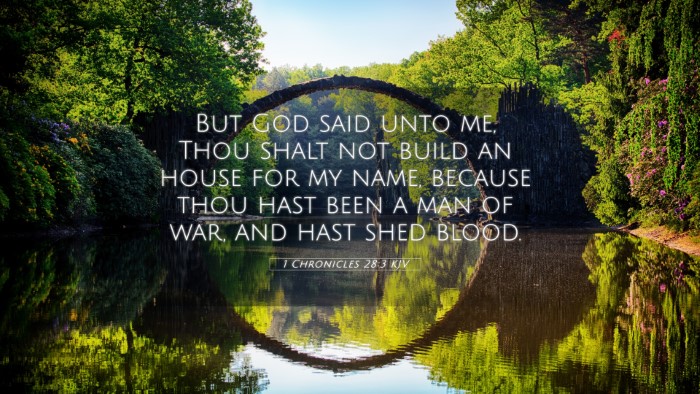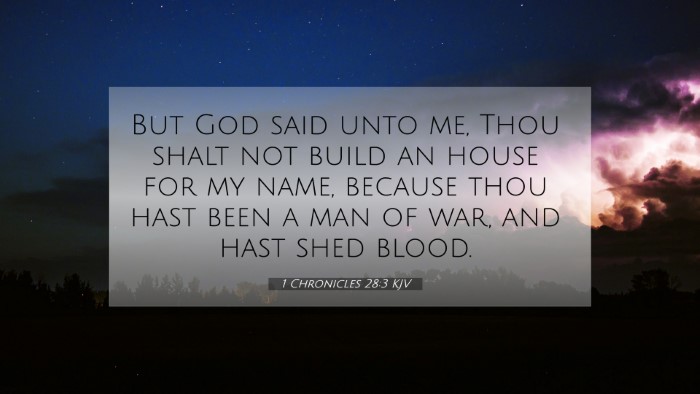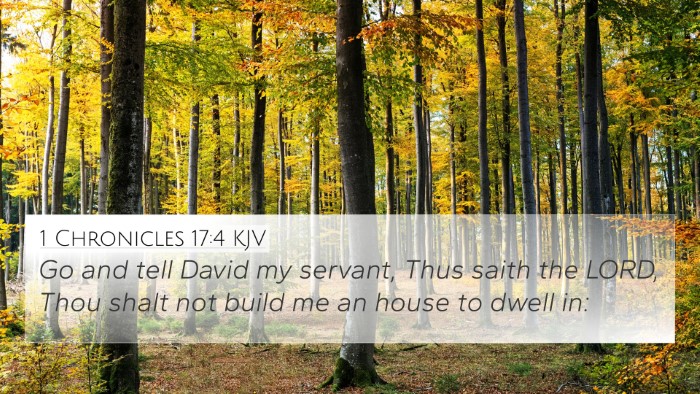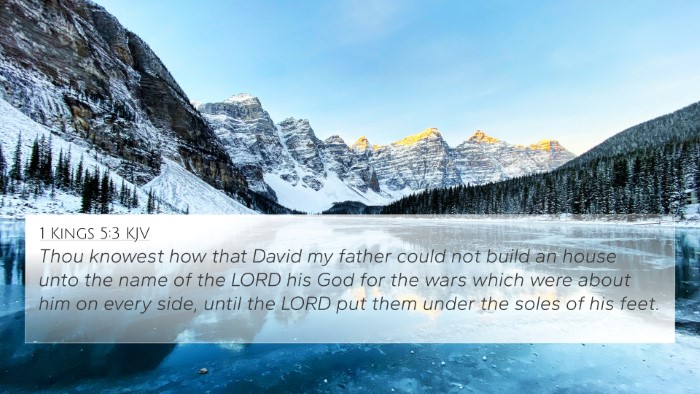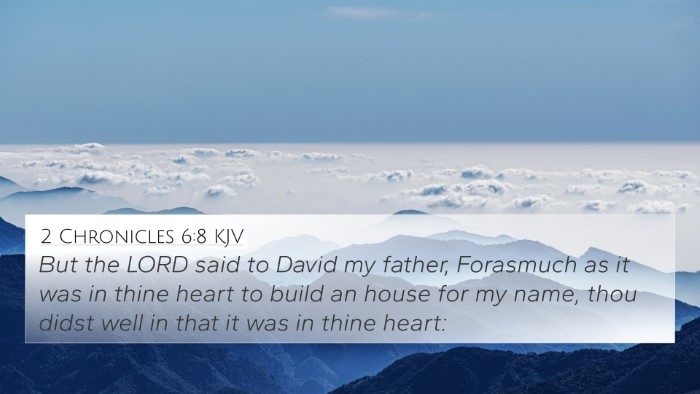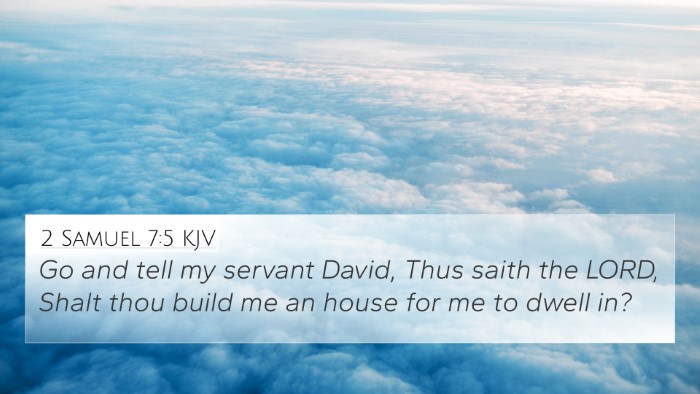Understanding 1 Chronicles 28:3
This verse captures a moment of profound significance in the narrative of King David as he prepares to pass the mantle of leadership to his son Solomon. David expresses his desire to build a temple for God, yet he acknowledges that this task is not meant for him due to his history of warfare and bloodshed.
Verse Text: "But God said to me, 'You shall not build a house for my name, for you are a man of war and have shed blood.'" (1 Chronicles 28:3)
Key Themes:
- The divine design and purpose of God
- The rejection of David’s ambition due to his past
- The importance of holiness in serving God
- The succession of leadership within the Israelite monarchy
Insights from Commentaries:
- Matthew Henry: David's desire to build the temple stems from a place of love and honor for God. However, God's choice to deny David this task highlights the principle that not all good intentions align with God's plan. David's character, marked by military conquest, made him unsuitable for building a house of peace for worship.
- Albert Barnes: Barnes emphasizes the concept of God's sovereign choices in determining who is suitable for sacred tasks. David’s violence in warfare resulted in God choosing Solomon, a man of peace, to undertake the temple's construction. This reflects God's sovereignty and the broader theme of divine selection.
- Adam Clarke: Clarke offers a detailed contextual analysis, noting that David’s warfare was essential for the protection of Israel, yet it also precluded him from building the temple. He suggests that the task of building the temple is a symbol of peace, which is incompatible with the history of a warrior king.
Bible Verse Cross-References:
- 2 Samuel 7:5-7: God's covenant with David addresses the building of the temple.
- 1 Kings 5:3-5: Solomon's preparation to build the temple as a fulfillment of David's wishes.
- Psalm 30:6-7: David's reflections on his past and the grace bestowed by God.
- Hebrews 8:5: Contrast between earthly temples and heavenly realities.
- Acts 7:47-50: Stephen's address on the misconception of God dwelling in temples made by human hands.
- 1 Chronicles 22:8: God's restriction on David concerning the temple.
- Isaiah 53:5: The idea of peace associated with Christ, differing from the warrior image.
- Jeremiah 1:7: The theme of God choosing servants based on His divine criteria.
- Romans 12:1: The concept of offering oneself as a living sacrifice, aligning with buildings made for worship.
- Revelation 21:22: No need for a temple, emphasizing God’s presence centrally in the New Heaven.
Conclusion:
1 Chronicles 28:3 serves not only as a key narrative moment highlighting God’s ultimate authority in choosing His servants but also opens a discussion about holiness, ambition, and divine purpose in the context of worship. Through cross-referencing this verse with others, readers can explore the thematic connections and deepen their understanding of biblical texts regarding leadership and God's plans.

